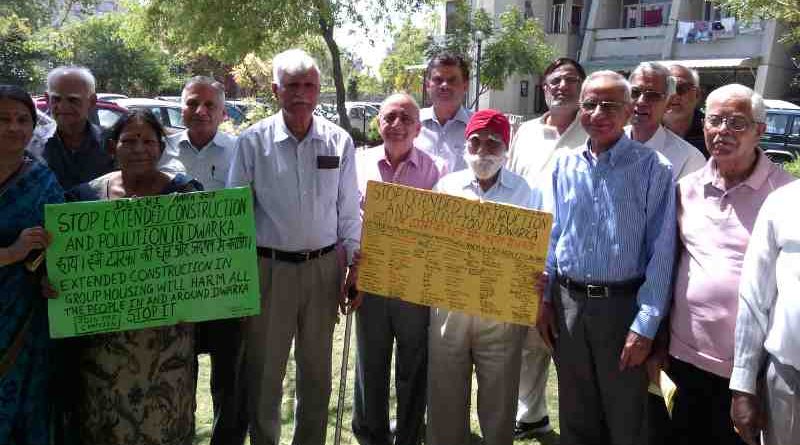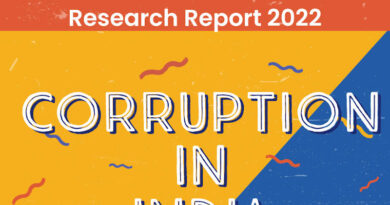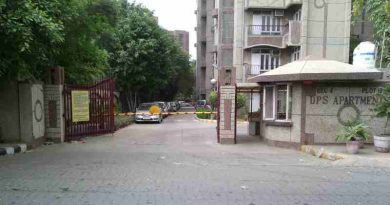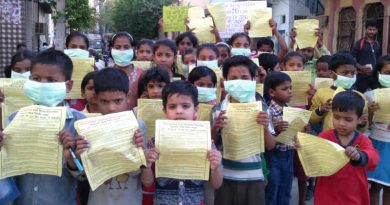Corrupt Bureaucrats and Careless Courts Allow Illegal Construction in Delhi

Corrupt Bureaucrats and Careless Courts Allow Illegal Construction in Delhi
In the current criminal environment where the administration as well as the judiciary is complicit in the FAR construction crime, it will be extremely difficult or impossible for the residents to get FAR construction stopped in their societies.
February 16, 2020
By Rakesh Raman
Today, dozens of cooperative group housing societies (CGHS) in Delhi are carrying out illegal extended construction [a.k.a. Floor Area Ratio (FAR) construction ] which is spreading lethal dust and noise pollution in the entire city.
The illegal construction racket is being run by the criminal managing committee (MC) members of housing societies, corrupt bureaucrats, and dishonest politicians in connivance with the builders’ mafia.
While corruption worth thousands of crores of rupees is taking place, the officials of the Delhi Development Authority (DDA) and the Registrar Cooperative Societies (RCS) are complicit in the construction crime.
Although many residents who oppose FAR construction have been going to the courts to get it stopped, unfortunately the courts are not quite willing to stop this crime and corruption enterprise that is causing extreme health hazards among millions of Delhi residents.
For example, recently the residents of Chandanwari Apartments (Chandanwari CGHS), Sector-10, Dwarka filed a petition [ Delhi High Court W.P. (C) 638/2020 ] to get the illegal and unauthorized construction stopped in the society.
But instead of stopping the construction and saving the lives of hundreds of people – men, women, children, including senior citizens – the court is unnecessarily delaying its decision while construction and pollution continue.
CLUELESS COURTS
As court judges and lawyers are clueless about environment laws and human rights issues, they are not able to handle the FAR cases intelligently. When the health and lives of complainants are at risk, the courts must immediately stop construction.
If the courts want to take the reply of the respondents, the judges can at least grant temporary / prohibitory injunction to stop construction on the basis of prima facie evidence such as photographs of construction, etc., balance of convenience, and the risk of irreparable injury.
Plus, the courts must immediately stop construction temporarily in the very first hearing while the case is in progress because this is avoidable construction which violates the human rights of people who want to live in a clean, pollution-free environment.
The Article 21 of the Constitution of India – Right to Life and Personal Liberty – gives every citizen the right to live in a peaceful environment including pollution-free clean air. Since this right is given to each individual, even the majority of members in a housing society cannot decide to carry out FAR construction when even a single resident opposes this construction.
However, the lawyers are not able to put these issues in the right perspective and judges are dumb and ignorant. As part of my social and editorial work, I interact with dozens of lawyers and review Indian and international court judgments. I have observed that most Indian lawyers are so naive that they cannot write a few English sentences correctly. Obviously, they cannot write full petitions or other court documents that can have any impact in the courtroom.
Since most lawyers are also dishonest, they steal content from other legal documents to make very weak and flimsy petitions or replies which have all types of mistakes in them. They also cannot speak properly in front of a judge. But these dishonest lawyers extort huge money from the clients who are also clueless about their own cases and the legal ecosystem which is totally flawed.
Since there is no accountability for lawyers if they lose the case, they deliberately delay the cases to have more hearings so that they could extract more money from the clients for each hearing. After every court hearing, the clients who oppose FAR construction, for example, think that they will be able to stop construction, but they only get new dates from the courts while construction never stops.
CORRUPTION AND DECEPTION IN COURTS
In the petitions to stop construction, DDA is one of the respondents. But it is seen that corrupt DDA officials either ignore the court directions or keep asking for more time to file their reply. Thus, they allow the criminal MC members to carry out illegal construction activity until it is complete.
The DDA officials delay their replies or give sketchy responses because they know that the FAR construction that they allow in housing societies is illegal. But the courts are so weak and careless that they ignore DDA’s delinquency.

The corrupt MC members of housing societies also know that FAR construction is illegal. So, they do FAR construction under the garb of building repairs. For example, the MC members of DPS CGHS (Sector 4, Dwarka) – which is among the most corrupt housing societies of Delhi – said in the Delhi High Court [ W.P.(C) 11280/2019 ] that they are “only carrying out repair and strengthening work.”
Video of Illegal and Unauthorized Construction at DPS CGHS, Sector 4, Dwarka, New Delhi. Police and DDA officials are bribed to carry out illegal construction which spreads lethal dust and noise pollution in housing societies.
Although the RCS office is supposed to stop such corruption and financial fraud in housing societies, the RCS officials do not take any action because they are heavily bribed by the MCs that collect crores of rupees for construction.
In the current criminal environment where the administration as well as the judiciary is complicit in the FAR construction crime, it will be extremely difficult or impossible for the residents to get FAR construction stopped in their societies. And those who think courts will help them are, in fact, living in a fool’s paradise.
By Rakesh Raman, who is a national award-winning journalist and social activist. He is the founder of a humanitarian organization RMN Foundation which is working in diverse areas to help the disadvantaged and distressed people in the society. He also creates and publishes a number of digital publications and research reports on different subjects.





